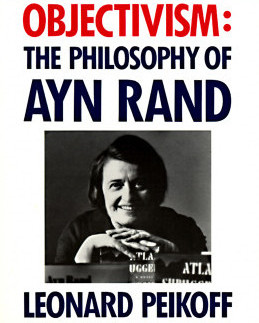An excerpt from chapter 10 on Government from Objectivism: The Philosophy of Ayn Rand by Leonard Peikoff.
The basic principle of politics, according to Objectivism, is the principle endorsed by America’s Founding Fathers: individual rights.
“Rights,” states Ayn Rand,
are a moral concept—the concept that provides a logical transition from the principles guiding an individual’s actions to the principles guiding his relationship with others—the concept that preserves and protects individual morality in a social context—the link between the moral code of a man and the legal code of a society, between ethics and politics. Individual rights are the means of subordinating society to moral law.1
A “right,” in Ayn Rand’s definition, “is a moral principle defining and sanctioning a man’s freedom of action in a social context.” A right is a sanction to independent action; the opposite of acting by right is acting by permission. If someone borrows your pen, you set the terms of its use. When he returns it, no one can set the terms for you; you use it by right.2
A right is …
Read the rest in Objectivism: The Philosophy of Ayn Rand.
